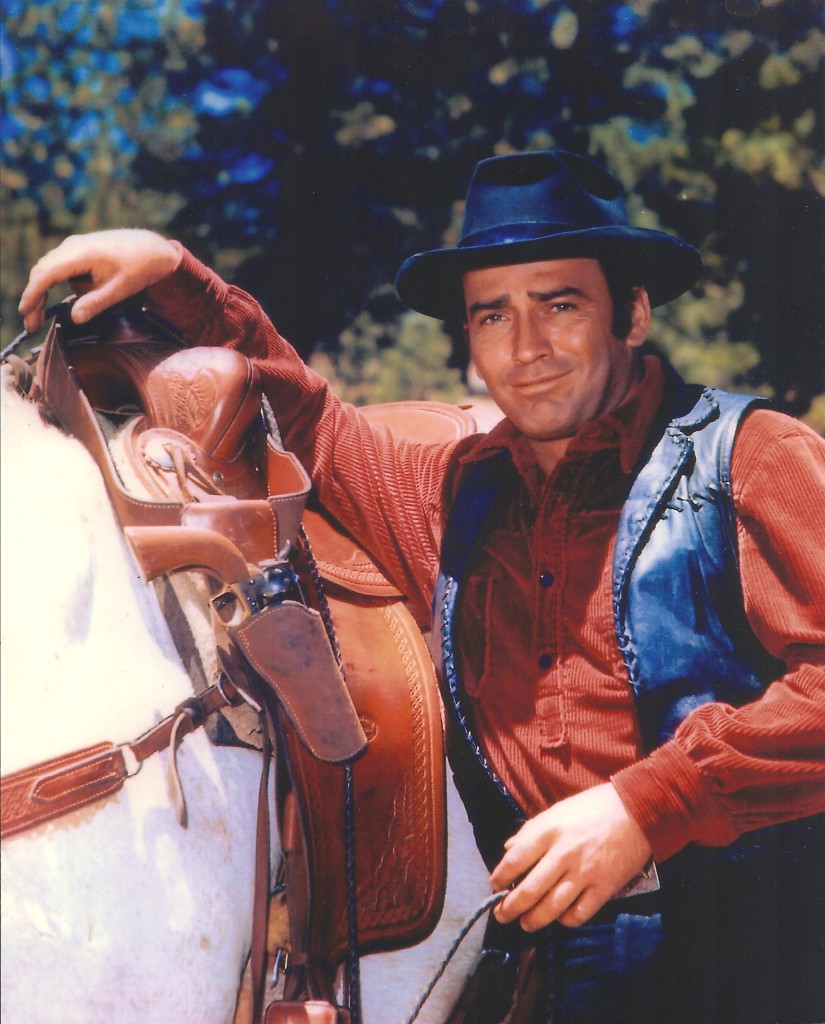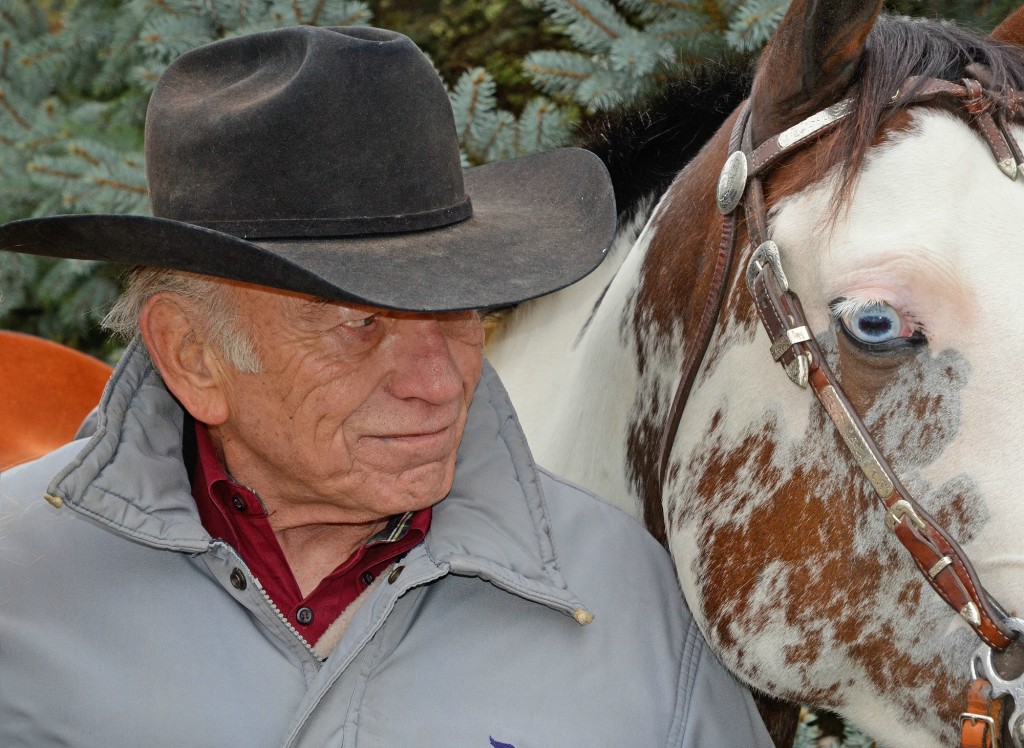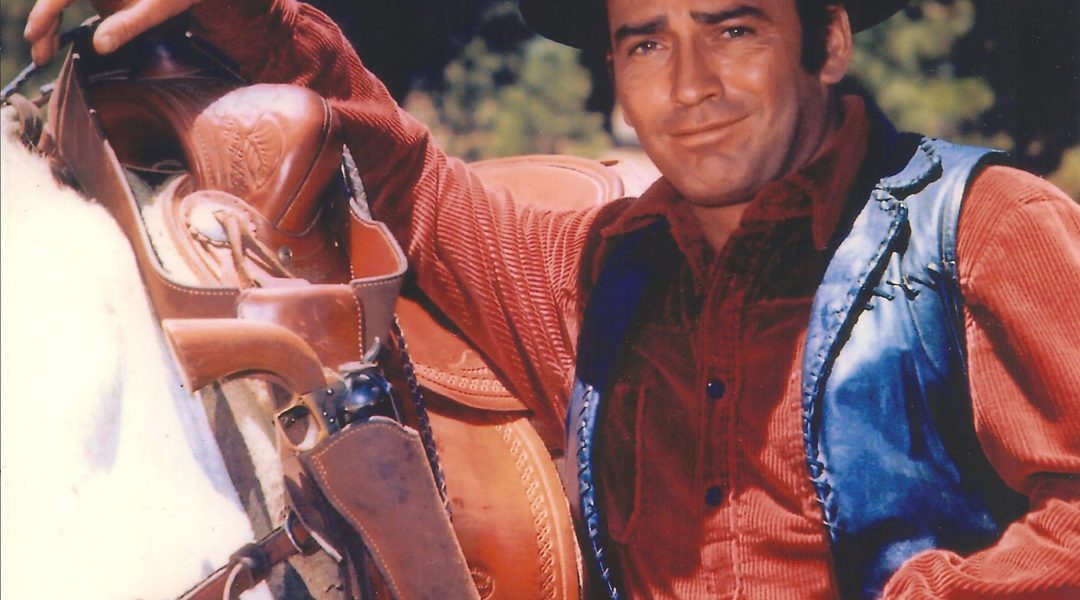
The star of classic television western The Virginian talks about the challenges of making a 90-minute show every week — such as shooting scenes for five different episodes in a single day.
Please don’t misunderstand: James Drury does not consider himself to be retired from acting. “I’m 82 years old,” he told C&I during a recent call from his home in Houston, “but I’m heartened by the fact that John Gielgud was still working when he was 95.” So pay attention, casting directors: “I’m anxious to work as an actor anytime. That’s not to say that I want to be in a film just to work in a film. But if I find something that I think I can do something with, and make an impression with, then I’d be glad to work anytime.”
In the meantime, Drury is keeping busy with other pursuits. He’ll be in Swanton, Ohio, April 22–24 — headlining a reunion of stars from The Virginian — at Cowboy Up for Vets, an annual event held to benefit the Navy-Marine Corps Relief Society and Heroes in Action. And when he’s not on the road for other personal appearances, he enjoys hearing from fans — and graciously agrees to converse with journalists — who want to talk about the classic TV western that made him an international star and continues to attract loyal audiences after decades of reruns on cable and broadcast channels.
Cowboys & Indians: Two years before the 1962 premiere of The Virginian, you starred in The Yank, a pilot for a proposed western series from the producer of The Rebel. It must have been a disappointment at the time when the pilot wasn’t picked up, but … .
James Drury: It turned out to be a blessing in disguise. Of course, at the time, you’re right — I was extremely disappointed. The funny thing is, I’d also done a half-hour pilot for The Virginian, playing The Virginian, for Screen Gems. That was a pilot that didn't sell, either. That was about the time that the networks were going from a half-hour to an hour with the westerns, and they just didn't pick up either one of the shows. But if either one of them had been successful — the chances are very slim that I would have had a chance to do a 90-minute Virginian for nine years. I thought I was unlucky, but I wasn't unlucky at all. I was just waiting for the bigger opportunity, and the bigger challenge. That's something I’ve always been happy about, the way that worked out. It's amazing that it did. You know, 90 percent of life is showing up — and the other 10 percent is pure luck, I think.
C&I: People tend to forget what a radical notion it was at the time to have a weekly 90-minute dramatic series of any sort with continuing characters.
Drury: Really, it was like doing a movie every week. We had 79 minutes and 30 seconds worth of film, which was as long as a lot of feature films of the day. It was a very radical concept. I know Wagon Train went to a 90-minute format for one season, and there may have been other attempts. But no one has ever been successful with 90 minutes for a western series except The Virginian. It's a very difficult thing to do logistically. It's a lot of film to get through. You have to have good stories and good writers. [Laughs.] It’s easier to spot a bad script in an hour show than it is in a half-hour show. And it’s a lot easier to spot a bad script in a 90-minute show than it is in an hour-long show.
C&I: You were able to attract quite a few major guest stars throughout the run of The Virginian.
Drury: Well, like I said, we were blessed to have a lot of really fine western writers working for us, and they were able to write big, important, juicy guest-star roles for men and women. Of course, then as now, actors were walking barefoot over broken glass to get to play a part that they wanted to play. As a result, we had the best actors and actresses in Hollywood come and work on our show. We had Bette Davis and Joan Crawford and George C. Scott and Colleen Dewhurst and Ralph Bellamy — and the list goes on and on. We had somebody great every week. It was a very unique situation. And it was a very wonderful place to be as an actor, because you were always working opposite someone who was extremely gifted and skilled, and you had to bring your game up to match theirs. It kept us on our toes and tested our mettle every single week.

C&I: Is it true that, because of your demanding production schedule, you often found yourself working on two or three episodes at the same time?
Drury: Sure. We had multiple units working quite often because we would run out of time. See, we had to provide one episode every week — but it took eight days to make one, so we had to make two or three at a time. You’d have a show where Doug McClure would have the largest role, and I’d come in for a small part. Then I’d go to another episode where I had the starring role, and I’d do several pages of script. And then I’d go someplace where Gary Clarke maybe had the starring role. It was fascinating how it all worked out, how it was all put together. On one famous occasion, I was in five episodes of The Virginian in the same day. You’d go from one soundstage to the backlot to another soundstage and back to the backlot. It was an amazing day, but we got it all done. It's where you really have to concentrate and keep everything straight so you're not saying the lines from one episode in another episode. Make sure you know where you are — end of story. Of course, that's something I was very, very determined to make happen. And I did. We all did. We were able to pull it all off.
C&I: What do you think is the key to the enduring popularity of The Virginian?
Drury: I think people respond to it because they get involved in the story, and it takes them away from their own problems, which is the definition of entertainment. That's what we were able to do, so I was very pleased and honored to be part of it. I still am quite proud of the show. And rightfully so, I believe.
For more information on The Virginian and James Drury, including scheduled appearances, visit the show's website.














